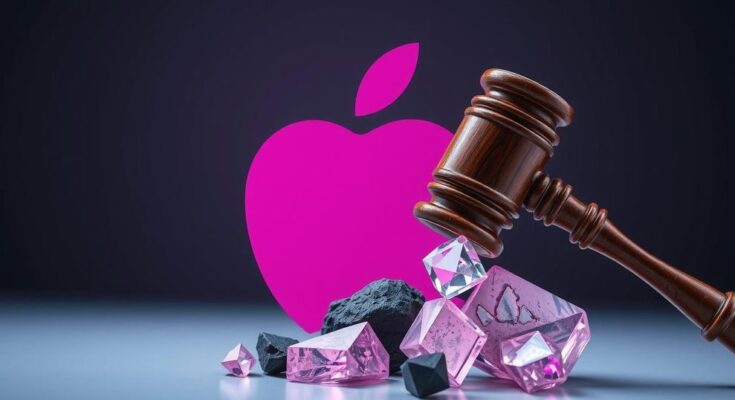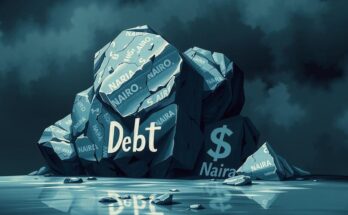The DRC has filed criminal complaints against Apple for allegedly sourcing conflict minerals from conflict zones in Africa, claiming deceptive practices in their supply chains. Lawyers argue that Apple’s use of these minerals supports armed groups and involves human rights abuses. Apple has denied these allegations, asserting its commitment to ethical sourcing but faces ongoing scrutiny regarding its supply chain practices.
The Democratic Republic of the Congo (DRC) has initiated criminal charges against Apple’s subsidiaries in France and Belgium concerning the alleged utilization of conflict minerals sourced from sub-Saharan Africa. Legal representatives of the DRC argue that Apple is employing misleading commercial practices, which create a facade of ethical sourcing in their supply chains, despite utilizing minerals that potentially support armed conflict. Such minerals, specifically tantalum, tin, tungsten, and gold, sourced from regions plagued by violence, have raised significant ethical concerns regarding human rights abuses linked to mining operations.
Conflict minerals refer to resources extracted from areas experiencing systemic violence and exploitation. The DRC, particularly its eastern region, is a focal point for these minerals, which are primarily controlled by armed groups. Christoph N Vogel, an expert on this issue, explains that these minerals significantly contribute to ongoing conflicts by financially empowering armed factions. According to various reports, the extraction process often includes severe human rights violations, including forced labor and other abuses.
Allegations against Apple gained momentum following a meeting between DRC President Felix Tshisekedi and lawyers from Amsterdam & Partners LLP, who were tasked with investigating the mineral sourcing practices of prominent companies, including Apple. Following a comprehensive examination, the DRC accused Apple of profiting from minerals derived from illegitimate channels, hence compelling the country to pursue legal action in European courts.
Apple has publicly refuted these allegations, emphasizing its commitment to ethical sourcing and stating that it informed suppliers to cease sourcing minerals from conflict zones. Nevertheless, the DRC’s legal representatives assert that Apple’s assurances require verification, indicating their intent to hold the company accountable for its supply chain practices. They have also reached out to European authorities, demanding systemic changes in how conflict minerals are regulated within the EU.
The case against Apple highlights a critical intersection between corporate responsibility and international regulatory frameworks concerning conflict minerals. The outcome may not only affect Apple’s operations but could also set a precedent for how multinational corporations engage with supply chains associated with human rights issues in conflict regions.
The Democratic Republic of the Congo (DRC) has long been embroiled in conflict, with its mineral wealth often fueling violence and human rights violations. Certain minerals, known politically and ethically as ‘conflict minerals,’ include tantalum, tin, tungsten, and gold—resources frequently linked to armed groups in regions like the DRC and surrounding areas. These minerals are critical in various industries, especially in technology and manufacturing, and their extraction is often marred by serious human rights abuses, leading to international efforts for regulation and accountability in sourcing practices. As corporations like Apple face scrutiny, the discourse surrounding conflict minerals is becoming increasingly urgent, especially concerning compliance with established ethical sourcing standards and the implications for local communities.
The criminal charges against Apple by the DRC underscore the complexity of sourcing minerals ethically in conflict-affected regions. There is an imperative for corporations, including major tech companies, to ensure that their supply chains do not inadvertently support human rights abuses and armed conflict. The case also raises significant questions regarding the effectiveness of current regulations surrounding conflict minerals in Europe and the responsibility of multinational corporations to uphold ethical sourcing practices. As this legal battle unfolds, it may serve as a critical touchpoint for reforming how companies manage their supply chains in relation to conflict minerals.
Original Source: www.aljazeera.com




